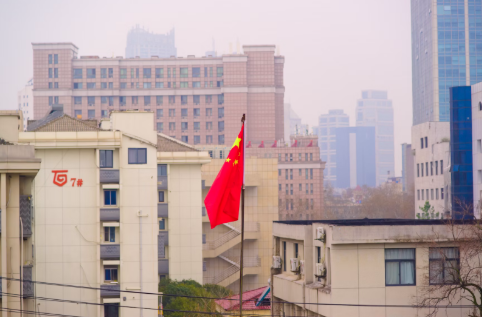China’s Top Court Tightens Labor Rules, Extends Liability to Foreign Offices
China’s Top Court Tightens Labor Rules, Extends Liability to Foreign Offices
Beijing, September 1, 2025 – China’s Supreme People’s Court (SPC) has implemented a sweeping Judicial Interpretation (II) on Labor Dispute Cases that took effect today, aiming to unify how courts handle employment conflicts. Issued on August 1, 2025, the interpretation clarifies contentious issues – from non-compete agreements to social insurance obligations – to ensure consistent judgments nationwidechambers.com. Notably for foreign employers, the SPC has for the first time explicitly confirmed that foreign companies’ representative offices can be pulled into Chinese labor lawsuits, significantly expanding potential liabilitychambers.com. These changes demand immediate attention from multinationals operating in China, including foreign law firms with local staff, as they tighten compliance requirements and close loopholes in workforce management.
Unified Standards Across China
The new judicial interpretation provides authoritative guidance binding on courts in all jurisdictions, minimizing regional inconsistencies that previously plagued labor litigationchambers.com. It codifies how judges should interpret key provisions of China’s Labor Contract Law and related regulations. For example, criteria are now codified for what counts as two consecutive fixed-term contracts (entitling an employee to an open-ended contract), preventing employers from evading open-term obligations through technicalities. The SPC also issued six typical cases alongside the rules, illustrating their application in scenarios like overtime disputes and severance calculationschambers.com. This unified approach means foreign firms can no longer rely on lax enforcement in one city versus another – compliance must meet a high national bar. Employment policies, contracts, and handbooks should be reviewed and standardized in line with the clarified interpretations to avoid adverse rulings.
Foreign Representative Offices on Notice
In a landmark development, the SPC addressed the status of foreign employers’ China representative offices, which historically operated in a grey zone for labor matters. Article 5 of the new interpretation explicitly permits a duly registered representative office of a foreign company to be named as a party in labor disputeschambers.com. Moreover, if an employee seeks to add the foreign parent company to the lawsuit, courts are instructed to allow it in accordance with lawchambers.com. This effectively strengthens the liability framework for foreign enterprises operating in China by preventing them from hiding behind their rep office’s limited legal statuschambers.com. Previously, rep offices had to hire staff through local dispatch agencies and often escaped direct judgments due to lack of legal personhood and assets, leaving some employee claims unsatisfiedchambers.com. Now, a foreign law firm’s Shanghai rep office (for instance) could see its overseas entity joined in a case over a terminated local employee, ensuring the claimant has recourse to the firm’s broader assets. Foreign employers should reassess their hiring structures – using third-party staffing arrangements will no longer shield the home entity from liability if it in substance acts as the employer. Ensuring clear contracts and considering insurance for employment claims are prudent steps in this new era.
Non-Competes and Employment Terms Redefined
The interpretation also tackles long-debated issues like post-termination non-compete agreements and contract renewals. Courts are now directed to invalidate non-compete clauses for employees who never had access to trade secrets or sensitive IP, underscoring that such restrictions must be proportional to the worker’s rolechambers.comchambers.com. Excessively broad or lengthy non-compete terms that aren’t commensurate with the confidential information the employee actually knew can be declared partially invalid by a courtchambers.com. At the same time, the SPC confirmed that non-compete obligations can legitimately be applied during employment for key personnel, without requiring extra compensation during the employment periodchambers.com. These clarifications will force companies – including foreign firms – to tighten how they draft and enforce non-competes, ensuring they tailor the scope and provide required consideration (like post-employment compensation) when necessary.
Other provisions address contract tenure manipulation. For example, if an employee continues working in the same role through successive contract extensions exceeding one year, that counts as the consecutive contracts needed to demand an indefinite contractchambers.com. This closes loopholes where employers rotated employees between affiliates or issued serial extensions to avoid open-ended contractschambers.com. Multinationals must now review their China employment contracts and HR practices to ensure they aren’t inadvertently violating these rules – e.g., by using back-to-back fixed terms or overly broad non-competes. Training HR and legal teams on the new standards is critical to mitigate wrongful termination or invalid contract claims.
Enforcement and Compliance Outlook
Chinese courts are expected to rigorously apply these unified rules immediately. We can anticipate more employee victories where previously ambiguous law allowed corporate defenses. The publication of representative cases by the SPC provides a roadmap: lower courts will likely follow those examples in ruling on disputes over co-employment, overtime, or benefits. Foreign companies should prepare for stricter enforcement especially on issues like social insurance contributions, which the interpretation highlights. The cost of non-compliance is rising – firms could face joint liability across affiliates, higher damages for wrongly enforced non-competes (e.g., if a clause is found partly invalid), and increased litigation from employees emboldened by clearer rights. General counsel and compliance officers for foreign enterprises in China should treat this as a prompt to audit current labor agreements, contractor arrangements, and dismissal protocols. By aligning policies now and possibly engaging in refresher training for managers on lawful HR practices, companies can reduce the risk of disputes. In the long run, the clearer rules may also provide more predictability. But in the short term, foreign employers must adjust to a more employee-friendly regime that leaves less room for error when managing a workforce in China.



